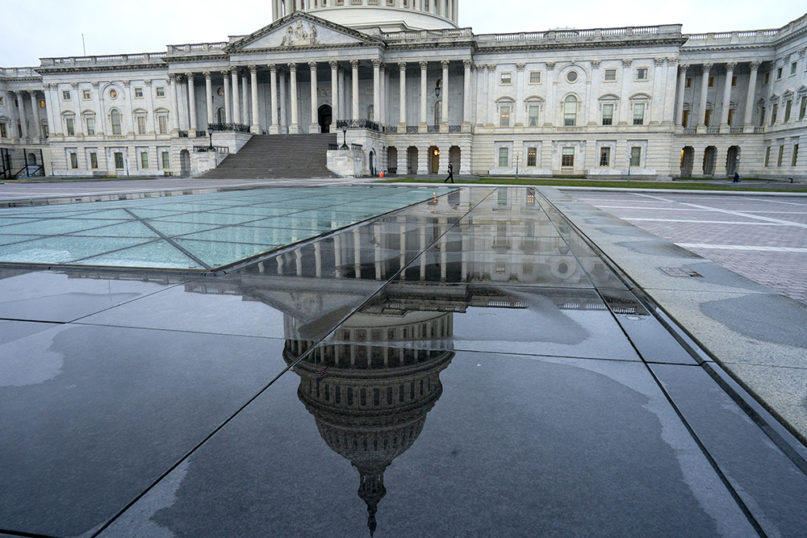(RNS) — The impact of the coronavirus is a global natural disaster in progress. Followers of Jesus have a choice to make.
When COVID-19 was primarily in China or Italy, it originally felt like a horrific car wreck on the highway from which we couldn’t look away. But over the last few days it has suddenly become the Category 5 headed for our town. Or the earthquake that destroyed our businesses and sent our friends or family members to the hospital. And we know we have weeks or months more of this.
For Christians, this is the moment Jesus calls upon our light — his light — to shine before men. Are we going to respond primarily thinking about ourselves and the logistics of how we can livestream church or manage online school? Or are we going to lift our heads and step into God’s calling to love and serve those around us who are scared, displaced and in need?
As in any other natural disaster, when schools, businesses and entire industries are closing or facing drastic disruption, when people are worried about how they will provide for their family, when society is beginning to see panicky behavior, this is the time for the body of Christ to be a voice of faith instead of fear — and a source of practical help.
There are dozens of examples. Here’s just one. As Harvard University and dozens of other colleges shut their campuses down, students have suddenly been told to pack up within days, leave campus with all their belongings and go home.
While that’s no problem for some, for others it is catastrophic: Where do they go? How do they move and/or store a year’s worth of belongings? While some international students who can’t afford a last-minute ticket home to China or Egypt are being accommodated, many aren’t so lucky. Thousands of domestic students can’t afford last-minute airfare to head home, nor can their parents afford the days off work to travel across country and pick up their child and their belongings.
I am hoping that every church close to a campus that is closing will see this as a moment to be a city on a hill — that every believer will heed God’s call to reach out. “We are here for you,” we must say. “Our people will take you in. Our people will store your furniture. We’ll be here as long as you need.”
If they are meeting, every such church should announce this need from the pulpit and sign up potential host homes in the lobby. Imagine the impact on the thousands of students to hear that hope and help from a group of people many of them are entirely unfamiliar with: followers of Jesus.
Two weeks ago, Jeff and I were speaking at Every Nation Church, not far from Columbia University in New York, which is also urging students to move out. When I heard that, I reached out to the pastor, Ron Lewis. He told me, “We’re reaching out to Columbia and NYU’s international student program leaders now. What can we do? This is the time for one on one. Everyone is in fear. The pandemic of fear is outpacing even the virus itself. Because of that, we suddenly have an environment to not only help but to speak, to share faith. To allay those natural fears with true security.”
Friends, every church today is probably making plans for physical contingencies and live-streaming services. But ministry contingencies are just as important. We need to wrench our eyes away from the news feeds and ask the Lord: What can we do?
Two millennia ago, during another set of pandemics, the church did the same. In A.D. 165 and 251, two great plagues swept the Roman Empire. Where pagans tried to avoid all contact with the sick, Christians put themselves at risk in order to succor those sick and dying, caring for those who had always treated them with contempt. But with the love of Christ in their hearts, how could they not step forward when so many were hurting and in need?
Many paid the ultimate price. But as Rodney Stark concluded in his 1996 book “The Rise of Christianity,” this visible love so overwhelmed the reigning philosophies of the day — it so showed Jesus — that it was one of the most important factors behind the explosion of our faith to every corner of the empire and beyond.
We hope and pray that this pandemic will never come close to the scale of those plagues, which killed millions. But the fear today is real. Let the Body of Christ be and show the perfect love that casts out fear.
(Shaunti Feldhahn is a social researcher, speaker, podcast host and author of “For Women Only, for Men Only” and, most recently, “Thriving in Love & Money.” The views expressed by this commentary do not necessarily reflect those of Religion News Service.)





